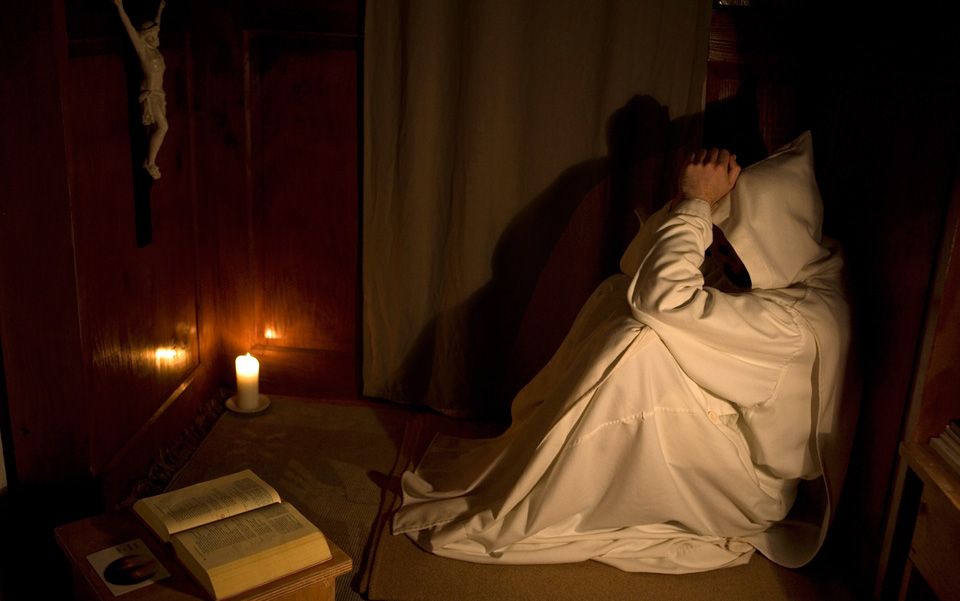
Christians are instructed by Apostolic teaching to ‘examine themselves to see if you remain in the faith.’ However, how does one go about doing this; how does one examine themselves? You could adopt any of the teachings of the great saints, like the ‘examine’ of Ignatius of Loyola; and probably should; it will be better than measly offering. I want to lay out for you some matrixes by which you can examine your life to see if you remain within the faith.
Now to be clear, I am assuming you have some grasp of the faith in the first place. I would encourage you to find for yourself a spiritual father/mother, a confessor, with whom you can grow in the faith and be accountable for the way you conduct your discipleship (that really should be more of a word amongst Christians).
These matrixes are axioms by which you can examine your life. I want to stress a few things which are important for self-examination. One, you need to deliberately set aside time to do it. Two, the examination is only as good as the questions you ask yourself. Asking what, where, when, how, who, and why are always good questions if you’re not sure what to ask. You will find yourself improving in terms of self-interrogation the more you ask it. Three, absolute candour is essential. I mean, GOD already knows all the answers, but do you? This self-honesty is psychologically good for you, however, this self-revelation is what helps you to adjust yourself; challenge yourself to grow in the faith and in discipleship.
The following are all axioms I have used myself. The names are subjective and personal; whatever you call them is up to you. You may think of others on the back of this article, or become more nuanced. This is just to get you started. I would encourage you to use pen and paper and record your observations, your decisions, and your reflections. This is personal – so keep it out of reach of anyone you do not wish to have it, but perhaps refer back to it from time to time. Finally, some of the biggest life decisions I have made have come out of this kind of reflection; so it can be very useful to help you navigate life.
My body: How do you use your body? Note all the ways that you currently use your body, I mean seriously, you might surprise yourself. The body is a temple of the Holy Spirit for the Christian, it is His tabernacle. So what and how you treat your body is entirely in the fold of the faith. Do you use your body well, are you looking after the body GOD gave you? Are you dishonouring yourself and those you love, and GOD by acts of self-abuse, abasement, or neglect? Are you managing your health issues well? See your body, oh Christian, for what it truly is, the temple of the Spirit of GOD; treat it and act accordingly! Then, let this influence how you treat other Christian bodies.
My time: Perhaps try to chart out how you spend an average day, an average week, an average month, and extrapolate how much time you are investing in different things. I mean, do a breakdown of everything, even down to how much time you spend sitting on the bus or driving. Where is the waste, where is the futility, where are the opportunities to use your time better, in study, in prayer, in learning, in meaningful relationships, in better care of yourself, in work for the kingdom, in service to the Church? Can you Christianise more of your time? I would encourage you to try to find work within Christian organisations as we spend a great proportion of our daily time allowance (everybody gets the same 24hours) at work.
My energy: What I mean is your emotional energy, that inner resource of desire, inspiration – that often expresses itself in what we actually spend our time and money on. What do your desires and passions point towards? What energises and excites you? How this is directed to the things of GOD or away from GOD will tell you a lot about yourself. Contrastingly, what things drain you, bore you, fatigue you will also tell you a lot about yourself. What are your predominant emotions; what emotions do you feel the most of and why?
My thoughts: When you are alone and relaxed, where do your thoughts just drift off to? What do you find yourself thinking about? These things speak to us about the state of our mind. What is your internal narrative, what does it say to you? What does it say about you? You can know yourself a lot by knowing where your mind goes and being alive to your thoughts. Your not powerless to them; you can change your mind (repent). As the mind works from memory as much as muscles, you can retrain it.
My money: Do a breakdown on all the things you spend your money on, right down to the penny sweets (if that is your thing). Christ said that where the heart is, the treasure will be also. The kinds of things you spend your money on will say a lot about what your concerns are. Do you tithe? Do you have a place for the cause of the Church and the Kingdom in your spending? Are you funding unchristian causes or groups? Are you too attached to your money?
Politically: What I mean by this is how your tacit and explicit support of groups and organisations either works for or against the Church. Do you shop at a cafe that deliberately sets itself up in opposition to the Christian faith? Do you eat halal meat (which excludes Christians from certain roles within the economy)? Are you a volunteer with an organisation that opposes Christian life? Who do you vote for; are they pro-abortion? Where you spend your money, your time, your thoughts, your energy will express itself politically and that politics can be for or against the Church and kingdom of GOD!
Socially: Here, you are invited to reflect on your relationships. Who do you spend time with; who are your friends? How do you find them; healthy or unhealthy? Who is influencing whom? What, if anything, is stopping you from building good and godly relationships with others, especially those within the Christian community? I would suggest to you that you should be spending more time with Christians than non-Christians. We fish for men, we don’t go and live in the sea!
Economically: Do not underestimate how business and the economy affects society. So, try and support Christian businesses and give Christian jobs and promotions wherever you can. How are you conducting yourself on your job; are you being faithful and dutiful, not compromising your faith such as working on the sabbath (whenever you have it)? Are you upholding your Christian identity when challenged on it? Are you frightened to fight discrimination cases when you are indeed discriminated against because of your faith? Are you involved in a trade union that is un-Christian? The economy and politics are key areas for Christian discipleship and are the two most neglected.
Spiritually: This is looking at your practice of spiritual disciplines. The point of spiritual disciplines is that they help peg our life in as Christians; they are a way of creating space for the Holy Spirit to do His work amongst us, collectively and individually. The point of any discipline is that it draws you closer to GOD. There are some that emerge immediately out of revelation; however, you might and can supplement them with others as your faith and walk requires. So, here are seven to get you started: prayer, fasting, alms-giving, study of the faith, self-examination (this article helps with this one), evangelisation, and living in community.
One maxim most important is this… do not judge, not even yourself. Leave all judgement to GOD who, on that day, will bring all hidden things to light and will reward us according to our works. However dispassionately and objectively, observe yourself as you are in the world. This will tell you what your values are, what you believe, and how far you have to go in your discipleship and building those virtuous circles into your life that store up righteousness in our souls. I hope this article helped! Let me know in the comments your thoughts.

